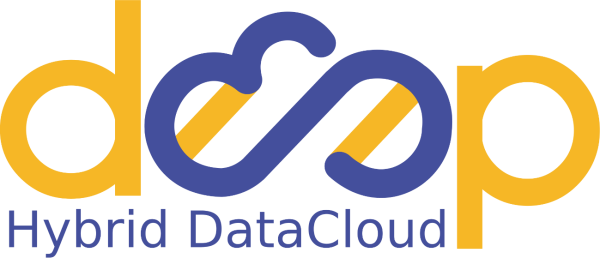
Atos is the European leader in Cloud, Cybersecurity, High-Performance Computing and provides end-to-end orchestrated Hybrid Cloud, Big Data, Business Applications, and Digital Workplace solutions. From 2017 we are participating in the project named DEEP Hybrid DataCloud.
The final goal of the project is to prepare a new generation of e-infrastructures that harness the latest generation technologies, supporting deep learning and other intensive computing techniques to exploit very large data sources. The project will provide the corresponding services to lower the adoption barriers for new communities and users, satisfying the needs of both research, education communities and citizen science.
The project use cases as deep learning modules are publicly available as Open Source in the DEEP Open Catalogue and publicly accessible in the DEEP Open Market. They are categorized in the following main extendable groups:
- Earth observations: deep neural network applications to perform pattern recognition on satellite images.
- Biological and medical science: deep learning modules for biomedical image analysis have opened new opportunities in how diseases are diagnosed and treated.
- Cyber-security and network monitoring: providing modules with co-functions enhancements for surveillance Intrusion Detection Systems supervising traffic network flows of computing infrastructure.
- Citizen science: deep learning modules for leveraging citizen science in large-scale biodiversity monitoring.
- Citizen science: deep learning modules for leveraging citizen science in large-scale biodiversity monitoring.
- General-purpose: this includes modules that can be used across a wide range of domains.
In February 2020 DEEP Hybrid DataCloud has published its second software release and platform, code-named “DEEP ROSETTA”.
DEEP Rosetta expands on the first version of software generated by the project, called “DEEP Genesis”, enlarging its functionalities, enhancing the stability of the different components and adding new features. As the consortium team say: “Developing, training and deploying your model has never been easier”.
All the changes in this new release are oriented towards the common project goal of easing the path for the scientific communities to develop, build and deploy complex models as a service at their local laptop, on a production server or on top of e-Infrastructures supporting the DEEP-Hybrid-DataCloud stack.
The platform now supports asynchronous training and allows to launch, monitor, stop and delete the training directly from the web browser. The trained models to perform inference can now be chosen from the models available in the training history. In addition, a user-friendly training dashboard allows now to easily and transparently deploy the modules in a cloud environment.
The DEEP Rosetta release consists of:
- 10 products distributed via 22 software packages and tarballs supporting the CentOS 7, Ubuntu 16.04 and 18.04 operating systems.
- 15 fully containerised ready-to-use models from a variety of domains available at the DEEP Open Catalogue.
The full list of products together with the installation, configuration guides, and documentation can be consulted on their website.
The project has a time duration of 30 months and brings together 10 leading European research/academic institutions, industrial stakeholders and SMEs from 7 different countries, with high expertise in the areas of Cloud computing, Edge computing, Extremely Large Data, Deep Learning, Hybrid.
More information on the DEEP Hybrid DataCloud project can be found at
https://deep-hybrid-datacloud.eu/
For additional information please contact us!